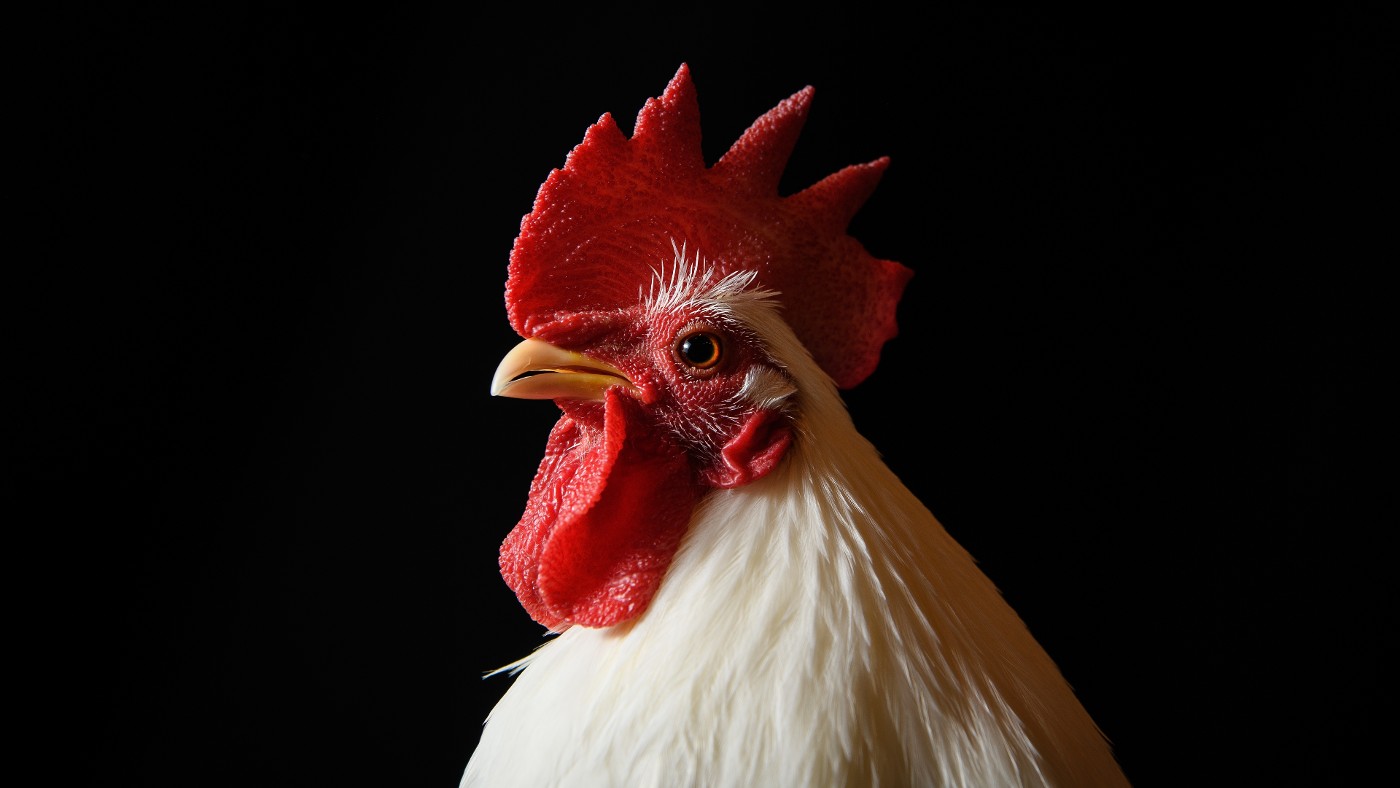The U.S. veterinarian shortage crisis
With an anticipated shortage of 15,000 vets by 2030, it will be harder to get care for pets


A free daily email with the biggest news stories of the day – and the best features from TheWeek.com
You are now subscribed
Your newsletter sign-up was successful
With a spike in pet adoptions during the pandemic and more veterinarians retiring from the profession than graduating, there is a definite vet shortage in the United States. This is making it harder for people to get appointments for their animals and putting additional stress on already overworked veterinarians.
What is causing the shortage?
A few things. First, there is high demand for veterinarians right now. In the early days of the pandemic, with people spending more time at home, many turned to animals for companionship and comfort — the ASPCA found in 2021 that about 31 million households got a dog or cat in the months after March 2020. Research also shows that in the last four decades, people have increasingly been spending more on health care for their pets, taking them to the vet more and bringing them to specialists.
The veterinary medicine industry had staffing issues before the pandemic, but it made things worse. Carrie Jurney, a veterinary neurologist in Northern California, told The Atlantic in 2022 that because of the pandemic, "all of my friends who were at retirement age — that were in their early 60s — just retired immediately." Many did not want to risk getting sick while others were tired of irate clients.
The Week
Escape your echo chamber. Get the facts behind the news, plus analysis from multiple perspectives.

Sign up for The Week's Free Newsletters
From our morning news briefing to a weekly Good News Newsletter, get the best of The Week delivered directly to your inbox.
From our morning news briefing to a weekly Good News Newsletter, get the best of The Week delivered directly to your inbox.
How is the shortage affecting working veterinarians?
Many, especially those who run their own practices, are having to work longer hours and turn away new clients. Several veterinarians interviewed in April by Iowa's The Gazette newspaper said they are experiencing stress, compassion fatigue and burnout. "It's hard enough to deal with tragedy and death and emergency and things like that," Jessica Martens, hospital manager at Bright Eyes Bushy Tails in Iowa City, told The Gazette. "There's extreme highs and there's extreme lows, and you're going through that hour by hour by hour."
A 2018 study published in the Journal of the American Veterinary Medical Association looked at more than 30 years of data and found that veterinarians are up to 3.5 times more likely to die by suicide than members of the general population. The group Not One More Vet provides veterinarians with mental health and wellness resources, education and support, as well as grants for those experiencing a financial crisis.
What is the scope of the shortage?
Research conducted in 2022 by Mars Veterinary Health found that based on expected needs, by 2030 there will have to be about 41,000 additional veterinarians in the workforce. It's expected, however, that there will be a shortage of about 15,000 vets.
How can this shortage be alleviated?
It's not that people aren't interested in becoming vets — one of the issues is there are not enough spaces in veterinary programs. The United States has 32 accredited schools of veterinary medicine, the American Association of Veterinary Medical Colleges said, and 3,200 students graduate from them every year. There are also new programs in the works, with Clemson University moving forward with its plan to open South Carolina's first school of veterinary medicine.
A free daily email with the biggest news stories of the day – and the best features from TheWeek.com
If schools made room for more students, that would help, but it's easier said than done. In the last two decades, the Iowa State University College of Veterinary Medicine grew from about 100 students to approximately 160 students. For fall 2023, the program received 2,100 applications for those slots. The demand is there, but "at this point, we're pretty much capped out on our ability to grow because of physical facilities, classroom sizes, our training centers, our laboratories, and everything like that," Dean Dan Grooms told The Gazette.
In order to get veterinarians to more rural or underserved areas, Grooms suggests enticing them with perks like loan repayments; in 2022, the average debt for veterinarian graduates was $147,258, the American Veterinary Medical Association (AVMA) said. It would also benefit all veterinary practices if techs were given more responsibilities, so the vets could focus on specialized care like surgeries and diagnosing illnesses.
Is the vet shortage hurting pets?
Emergency clinics that used to be open 24 hours a day, seven days a week have had to start cutting back their hours and turning away patients, even those in distress. One pet owner in Cleveland told The Atlantic that when her cat had a necrotic wound, she had to call more than 50 veterinarians before securing an appointment.
Animals in shelters are also being affected. Earlier this year, the San Francisco SPCA found that more than 300,000 animals in California shelters were not receiving adequate care, KRON reported. In overcrowded facilities, more dogs and cats are getting sick, and animals that otherwise could have been adopted are instead euthanized. There are shelters that offer low-cost spay and neuter programs as a community service, but without enough vets to perform the operations, it's leading to more stray animals on the streets.
What can pet owners do?
AVMA recommends that if a pet owner does not have a primary care veterinarian, they find one as soon as possible to establish a relationship. It's important to schedule routine wellness exams far in advance, so the vet can stay on top of the animal's health and discover any new conditions they might have, and keep up to date on vaccinations.
Catherine Garcia has worked as a senior writer at The Week since 2014. Her writing and reporting have appeared in Entertainment Weekly, The New York Times, Wirecutter, NBC News and "The Book of Jezebel," among others. She's a graduate of the University of Redlands and the Columbia University Graduate School of Journalism.
-
 How the FCC’s ‘equal time’ rule works
How the FCC’s ‘equal time’ rule worksIn the Spotlight The law is at the heart of the Colbert-CBS conflict
-
 What is the endgame in the DHS shutdown?
What is the endgame in the DHS shutdown?Today’s Big Question Democrats want to rein in ICE’s immigration crackdown
-
 ‘Poor time management isn’t just an inconvenience’
‘Poor time management isn’t just an inconvenience’Instant Opinion Opinion, comment and editorials of the day
-
 Mouse keeps tidying up man's shed
Mouse keeps tidying up man's shedTall Tales And other stories from the stranger side of life
-
 Mystic's 'terrifying' 2024 predictions
Mystic's 'terrifying' 2024 predictionsTall Tales And other stories from the stranger side of life
-
 White Easter more likely than a white Christmas
White Easter more likely than a white ChristmasTall Tales And other stories from the stranger side of life
-
 Middle-class chickens pampered at 'hotels'
Middle-class chickens pampered at 'hotels'Tall Tales And other stories from the stranger side of life
-
 ‘Irony’ as Zoom calls staff back to office
‘Irony’ as Zoom calls staff back to officefeature And other stories from the stranger side of life
-
 Is the 'vibecession' over?
Is the 'vibecession' over?Speed Read The IMF reported that the global economy is looking increasingly resilient. Is it time to start celebrating?
-
 Inside Russia's war crimes
Inside Russia's war crimesSpeed Read Occupying forces in Ukraine are accused of horrific atrocities. Can they be held accountable?
-
 Is it safe to ride a roller coaster?
Is it safe to ride a roller coaster?The Explainer A pair of startling events have shined a light on amusement park safety
